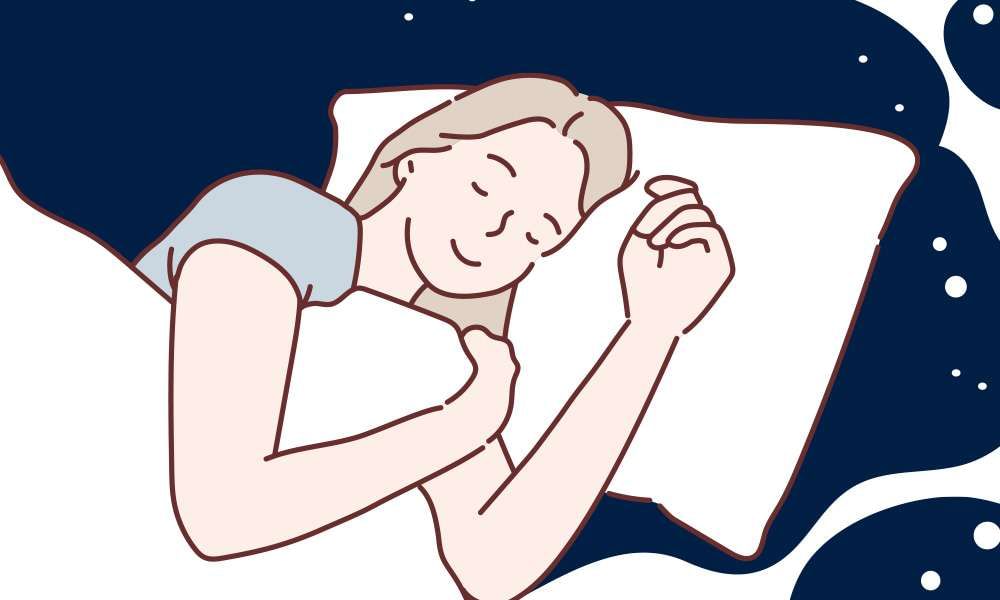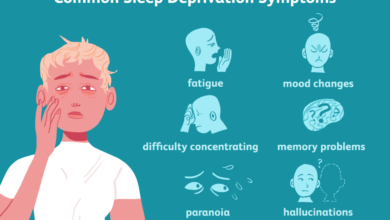
So You Want to Start Getting More Sleep?
So you want to start getting more sleep? It’s a common desire, and for good reason. Sleep is essential for our physical and mental well-being, yet many of us struggle to get enough of it. The consequences of sleep deprivation can be far-reaching, impacting everything from our mood and energy levels to our immune system and cognitive function.
But don’t worry, it’s not all doom and gloom. With a little effort and some strategic adjustments, you can reclaim your sleep and experience the many benefits of getting enough rest.
This blog post will guide you through a comprehensive plan to improve your sleep habits. We’ll explore the importance of sleep, assess your current sleep patterns, and create a personalized strategy to help you achieve restful nights and wake up feeling refreshed and energized.
Understanding Sleep Needs

Sleep is often considered a luxury, but it’s essential for our physical and mental well-being. It’s not just about feeling rested; it’s a crucial biological process that allows our bodies and minds to repair, restore, and recharge.
The Importance of Sleep
Getting enough sleep is vital for maintaining good physical and mental health. During sleep, our bodies perform various essential functions, including:
- Repairing and regenerating tissues:Sleep helps repair damaged tissues, muscles, and cells, promoting growth and development.
- Strengthening the immune system:Adequate sleep strengthens our immune system, making us less susceptible to illness.
- Regulating hormones:Sleep plays a crucial role in regulating hormones like growth hormone, cortisol, and insulin, which affect metabolism, mood, and stress levels.
- Consolidating memories:Sleep is essential for consolidating memories and transferring information from short-term to long-term memory.
- Improving cognitive function:Getting enough sleep enhances cognitive function, including attention, focus, decision-making, and problem-solving.
Consequences of Sleep Deprivation, So you want to start getting more sleep
Chronic sleep deprivation can have severe consequences for our health and well-being. These consequences can include:
- Increased risk of chronic diseases:Sleep deprivation is linked to an increased risk of developing chronic diseases such as heart disease, stroke, diabetes, and obesity.
- Weakened immune system:Lack of sleep weakens our immune system, making us more susceptible to infections and illnesses.
- Mood swings and irritability:Sleep deprivation can lead to mood swings, irritability, and difficulty concentrating.
- Increased risk of accidents:Drowsy driving and other activities while sleep-deprived significantly increase the risk of accidents.
- Reduced productivity and performance:Sleep deprivation can impair cognitive function, leading to reduced productivity and performance at work, school, or in other areas of life.
Factors Affecting Sleep Needs
Our sleep needs vary based on several factors, including age, lifestyle, and health conditions.
Age
- Newborns:Newborns require the most sleep, typically 14-17 hours per day.
- Infants and toddlers:As children grow, their sleep needs gradually decrease. Infants (4-11 months) need 12-15 hours of sleep, while toddlers (1-2 years) need 11-14 hours.
- Preschool and school-aged children:Preschoolers (3-5 years) need 10-13 hours of sleep, while school-aged children (6-13 years) need 9-11 hours.
- Teenagers:Teenagers require around 8-10 hours of sleep per night, but their sleep patterns often shift, making it difficult for them to get enough sleep.
- Adults:Most adults need 7-9 hours of sleep per night, although individual needs may vary.
- Older adults:Older adults may experience changes in their sleep patterns, needing less sleep than younger adults but often waking up more frequently during the night.
Lifestyle
- Physical activity:Regular exercise can improve sleep quality, but strenuous activity close to bedtime may interfere with sleep.
- Diet:A balanced diet can promote good sleep, while caffeine and alcohol can disrupt sleep patterns.
- Stress:Stress can significantly interfere with sleep, making it difficult to fall asleep and stay asleep.
- Work schedule:Shift work and long work hours can disrupt sleep patterns, leading to sleep deprivation.
Health Conditions
Certain health conditions can affect sleep patterns and quality. These conditions include:
- Sleep disorders:Conditions such as insomnia, sleep apnea, and restless legs syndrome can significantly disrupt sleep.
- Mental health conditions:Anxiety, depression, and other mental health conditions can interfere with sleep.
- Chronic pain:Chronic pain can make it difficult to fall asleep and stay asleep.
- Pregnancy:Pregnancy can lead to changes in sleep patterns and increased sleep needs.
Assessing Your Sleep Habits: So You Want To Start Getting More Sleep

To improve your sleep, it’s essential to understand your current sleep patterns and identify potential disruptors. This self-assessment will help you pinpoint areas for improvement.
So you want to start getting more sleep? That’s great! One thing that can help you feel more energized and ready for a good night’s rest is a strong core and glutes. Check out these 5 best moves for stronger glutes to help you build a solid foundation for better sleep and a more active lifestyle.
You’ll be amazed at the difference a few minutes of targeted exercise can make!
Sleep Diary
A sleep diary can be a valuable tool for tracking your sleep patterns and identifying any potential issues. It’s a simple log that helps you monitor your sleep habits over time.
So you want to start getting more sleep? It’s a great goal, but it can be tough to make time for it. One thing that helps me is planning ahead with easy, healthy meals. I’ve been loving all the fresh spring produce lately, and I’ve found that having a few key pantry staples on hand really helps me maximize the flavors.
Check out this article on 5 pantry staples to maximize spring produce – it’s full of great tips! With some strategic meal prep, I can enjoy delicious dinners and still get to bed early.
- Bedtime and Wake-up Time:Record the exact time you go to bed and wake up each day. This will help you determine your average sleep duration and identify any inconsistencies.
- Sleep Quality:Rate your sleep quality on a scale of 1 to 5, with 1 being the worst and 5 being the best. Consider factors like how easily you fell asleep, how often you woke up during the night, and how refreshed you felt upon waking.
- Sleep Disruptors:Note any factors that may have disrupted your sleep, such as stress, caffeine, alcohol, or late-night meals.
- Daytime Sleepiness:Assess your level of daytime sleepiness using a scale. Note any instances of excessive sleepiness or difficulty staying awake during the day.
Common Sleep Disruptors
Several factors can disrupt sleep, leading to poor sleep quality and daytime fatigue.
- Caffeine and Alcohol:Caffeine is a stimulant that can interfere with sleep, while alcohol, though it may initially make you feel drowsy, can disrupt your sleep cycles later in the night.
- Nicotine:Nicotine is a stimulant that can interfere with sleep. It can also cause withdrawal symptoms, such as anxiety and insomnia, which can disrupt sleep.
- Stress and Anxiety:Stress and anxiety can make it difficult to fall asleep and stay asleep.
- Medical Conditions:Certain medical conditions, such as sleep apnea, restless leg syndrome, and chronic pain, can disrupt sleep.
- Environmental Factors:A noisy environment, too much light, or an uncomfortable bed can make it difficult to sleep well.
- Shift Work:Working irregular hours can disrupt your body’s natural sleep-wake cycle.
- Medications:Some medications can have side effects that affect sleep.
Comparing Your Sleep Habits to Recommended Guidelines
The National Sleep Foundation recommends the following sleep durations for different age groups:
| Age Group | Recommended Sleep Duration |
|---|---|
| Newborns (0-3 months) | 14-17 hours |
| Infants (4-11 months) | 12-15 hours |
| Toddlers (1-2 years) | 11-14 hours |
| Preschoolers (3-5 years) | 10-13 hours |
| School-aged children (6-13 years) | 9-11 hours |
| Teenagers (14-17 years) | 8-10 hours |
| Young Adults (18-25 years) | 7-9 hours |
| Adults (26-64 years) | 7-9 hours |
| Older Adults (65+ years) | 7-8 hours |
“Most adults need 7-9 hours of sleep per night.”
Getting enough sleep is crucial for overall well-being, especially during pregnancy. It’s important to be mindful of your body’s needs and avoid any activities that could compromise your sleep. For instance, if you’re practicing yoga, it’s essential to be aware of yoga poses to avoid during pregnancy that could put undue pressure on your growing belly or strain your joints.
By making informed choices about your activities, you can prioritize your sleep and ensure a healthy and comfortable pregnancy.
National Sleep Foundation
Creating a Sleep-Friendly Environment
Your bedroom should be your sanctuary, a haven for rest and relaxation. A sleep-friendly environment is crucial for achieving quality sleep. Think of it as setting the stage for a good night’s sleep, and it involves creating a space that promotes relaxation and minimizes distractions.
Darkness
Darkness is a powerful sleep cue. When the sun sets, your body starts producing melatonin, a hormone that regulates sleep. Exposure to light, especially blue light emitted from electronic devices, can suppress melatonin production, making it harder to fall asleep.
- Blackout Curtains:Consider using blackout curtains to block out all light from entering your bedroom, especially streetlights and early morning sunlight.
- Dimming Lights:Avoid using bright lights in the hours before bed. Instead, opt for dim lighting to signal to your body that it’s time to wind down.
- Electronic Devices:Turn off all electronic devices at least an hour before bed. The blue light emitted from screens can interfere with melatonin production.
Quiet
A quiet bedroom is essential for a restful sleep. Noise pollution can disrupt your sleep cycle, making it difficult to fall asleep and stay asleep.
- White Noise Machine:Consider using a white noise machine to mask distracting sounds like traffic or neighbors.
- Ear Plugs:Earplugs can effectively block out noise, especially if you live in a noisy environment.
- Soundproofing:If noise is a persistent problem, you may want to consider soundproofing your bedroom.
Cool Temperature
Your body temperature naturally drops as you fall asleep. A cool bedroom, around 65 degrees Fahrenheit, helps facilitate this temperature drop, promoting a more comfortable and restful sleep.
- Adjust Thermostat:Lower the thermostat in your bedroom a few hours before bed.
- Light Bedding:Use lightweight bedding to avoid overheating during the night.
- Fan:A fan can circulate air and help cool down the room.
Humidity
Humidity levels can also impact sleep quality. A slightly humid environment can be more comfortable for sleep, while excessively dry air can lead to nasal congestion and discomfort.
- Humidifier:Use a humidifier to add moisture to the air, especially during dry seasons.
- Houseplants:Some houseplants, like peace lilies and snake plants, can naturally increase humidity levels in your bedroom.
Establishing a Consistent Sleep Schedule

One of the most crucial aspects of improving your sleep is establishing a consistent sleep schedule. This means going to bed and waking up around the same time each day, even on weekends. This helps regulate your body’s natural sleep-wake cycle, known as the circadian rhythm, leading to better sleep quality and overall health.
Benefits of a Consistent Sleep Schedule
Maintaining a regular sleep-wake cycle has numerous benefits for your physical and mental well-being.
- Improved Sleep Quality:A consistent sleep schedule helps regulate your body’s natural sleep-wake cycle, promoting the production of melatonin, a hormone that regulates sleep. This leads to better sleep quality, characterized by faster sleep onset, deeper sleep, and fewer awakenings during the night.
- Enhanced Energy Levels:A consistent sleep schedule ensures your body gets the required amount of rest, leading to increased energy levels and improved alertness throughout the day. This can enhance your productivity, focus, and overall mood.
- Reduced Risk of Chronic Diseases:Irregular sleep patterns have been linked to an increased risk of developing chronic health conditions such as obesity, diabetes, heart disease, and depression. Maintaining a consistent sleep schedule can help mitigate these risks.
- Improved Cognitive Function:Getting enough sleep and adhering to a consistent sleep schedule is crucial for cognitive function, including memory, attention, and decision-making. Studies have shown that consistent sleep patterns can improve cognitive performance and reduce the risk of age-related cognitive decline.
- Enhanced Mood and Emotional Regulation:Sleep deprivation can negatively impact mood, making you feel irritable, anxious, and depressed. A consistent sleep schedule helps regulate your emotions, improving your overall mood and reducing the likelihood of experiencing mood swings.
Impact of Irregular Sleep Patterns
Irregular sleep patterns can disrupt your circadian rhythm, leading to various negative consequences for your health and well-being.
- Sleep Disorders:Disrupted sleep patterns can increase the risk of developing sleep disorders such as insomnia, sleep apnea, and restless leg syndrome. These conditions can significantly impact your sleep quality and overall health.
- Decreased Productivity:Irregular sleep patterns can lead to daytime sleepiness, fatigue, and reduced cognitive function, impacting your productivity at work or school. This can lead to poor performance, decreased concentration, and difficulty making decisions.
- Increased Risk of Accidents:Sleep deprivation can impair your judgment, reaction time, and alertness, increasing the risk of accidents, especially while driving or operating machinery.
- Weakened Immune System:Sleep deprivation weakens your immune system, making you more susceptible to infections and illnesses. This can lead to frequent colds, flu, and other health issues.
- Increased Risk of Mental Health Issues:Irregular sleep patterns have been linked to an increased risk of developing mental health issues such as depression, anxiety, and bipolar disorder. Maintaining a consistent sleep schedule can help reduce these risks.
Sample Sleep Schedule
Here’s a sample sleep schedule that you can use as a starting point:
| Day | Bedtime | Wake-up Time |
|---|---|---|
Monday
|
10:00 PM | 7:00 AM |
| Saturday & Sunday | 10:30 PM | 8:00 AM |
Remember, these are just guidelines, and you may need to adjust your schedule based on your individual needs and preferences. The key is to create a schedule that allows you to get 7-9 hours of quality sleep each night and stick to it consistently.
Final Review
Getting enough sleep is a journey, not a destination. It takes time, effort, and consistency to establish healthy sleep habits. But the rewards are well worth it. By understanding your sleep needs, creating a sleep-friendly environment, and optimizing your sleep routine, you can unlock the transformative power of sleep and experience a healthier, happier, and more productive life.






